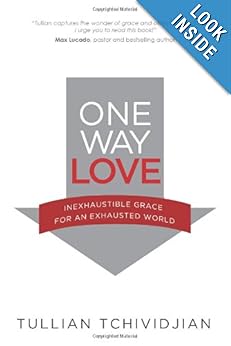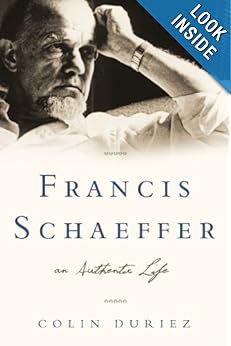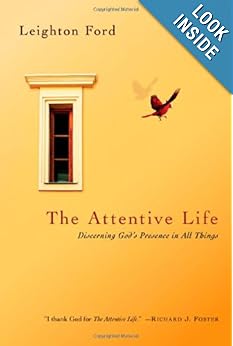Last week, I was blessed to travel to Nashville, Tennessee for the Bi-annual World Conference for the American Association of Christian Counselors. This conference is a very large gathering (7000+) of Christians dedicated to caring for hurting people. Attendees include not just counselors per se, but pastors, psychiatrists, psychologists, and the rare neuropsychologist like yours truly. The level of presentations and displays runs the gamut. I attend primarily because of my involvement with the
Society for Christian Psychology, though I typically benefit a great deal from the overall program.
I arrived late Tuesday evening at the majestic Gaylord Opryland Hotel. I have been there a few times before and have never failed to be awed by its size and grandeur. They upgraded me to a suite and offered a $150 credit if I was willing to take this room with only a pull out bed. My cheapness took over and I stayed in the beautiful suite overlooking the Cascades area.
I spent most of Wednesday morning in a time of solitude before heading to an afternoon pre-conference workshop. The topic was shame and was led by my friends Eric Johnson, David Jenkins, and Richard Winter. They addressed the biblical concept of shame and how to address it in a therapeutic context. They did a very nice job providing a much needed topic. After, we had dinner at an Irish Pub. I was able to spend quite a bit of time visiting with Dr Winter about his time at L'Abri. To talk with someone who was mentored by Francis Schaeffer was a real treat. That night we had a board meeting for the Society for Christian Psychology. Though committed to the organization and appreciative of the time I was able to spend with my friends, I did miss Ravi Zacharias, which was the only real downer. (I also missed Eric Metaxas and George Barna because I left early, but that is life, I suppose).
Thursday began the first truly busy day. I awoke to listen to John Ortberg. My appreciation for Ortberg has grown significantly over the last several years and especially this summer as I read his book
The Life You've Always Wanted, which is essentially a practical understanding of spiritual disciplines. Ortberg refers to this book as Dallas [Willard] for Dummies. Too right. This was followed by another presentation by Dr Jenkins on shame, this time addressing shame and the image of God. I probably need to get a copy of this teaching because I fear that I could not digest all of the meat presented in one sitting. It was very good. Later in the morning, I attended plenary sessions presented by Diane Langberg and David Jeremiah. Dr Langberg touched my heart with her discussion of human trafficking. Dr Jeremiah was a surprise. I have not listened to him much, but he presented a wise, informative talk. His talk was largely centered around his newest book,
What Are You Afraid Of?
In the afternoon, I was able to listen to my friend Curt Thompson talk about interpersonal neurobiology. Curt is the author of
Anatomy of the Soul, one of my favorite books lately. Curt's presentation style is unique. He is not so much bookish or academic because, as he noted, he realizes that most people do not remember what they hear in a setting like this. Rather, he knows that people remember how they felt. I think this is an important message in terms of connecting with others.

I was very much excited about Thursday afternoon, which highlighted Tullian Tchividjian and John Eldridge. Pastor Tullian has been one of the most important writers with regard to my own spiritual development. He has planted his flag by helping people to understand the radicality of grace and has certainly done so in my life. His talk at the conference was reminescent of his Liberate talk on
God's Two Words. I stayed for a few minutes to listen to Eldridge, but I did not find myself connecting with him, so I left. By God's grace, Tullian was standing in the lobby signing copies of his yet to be released book
One Way Love. There were only 8 people in line so I grabbed a couple of copies of the book and waited my turn. I was able to meet him, have my picture taken with him, and perhaps most importantly express my thanksgiving for how his message has changed my life. Although 40 years of age, I was like a giddy schoolboy. Come on, there's no shame in that!
New Testament scholar Matthew Elliott grabbed me on the way out of the Eldridge session and asked if I wanted to join him for dinner. The two of us found a hole in the wall deli that served an amazing Reuben sandwich. We visited about theology, emotion (his area of interest), and Oostburg, my home town. Interestingly, we discovered that Matthew and his family regularly vacation near Oostburg, which was a significant surprise. We got back in time that I was able to purchase a Tim Hawkins DVD even though I could not obtain tickets for his show.
Friday began with a morning meditation by Margaret Feinberg. Emotionally, this was by far the best talk. God has gifted this woman with an amazing capacity for telling stories. She paints pictures with her words. I think I felt particularly moved by her as she is in the midst of chemotherapy for breast cancer and identified many of the same struggles my wife did several years ago. For example, she encouraged us to be thankful for nose hair, because it helps us to be aware when our nose is running. That morning, there was also beautiful singing by Little Feet, a choir made up of adopted and orphaned children from Haiti, Ethiopia, India, and the United States. It was beautiful.
As I left that meeting, I went to hear my friend Eric Johnson talk about suffering and the sovereignty of God. His talks are always theologically rich and anthropologically comforting. Though we only see each other once a year and communicate not much more often than that, he is definitely a mentor to me. Later in the morning Mark Driscoll and Max Lucado presented. Driscoll's
talk was exceptional, addressing the difference between good news and good advice as grounds for Christian counseling. This was perhaps the most pastoral I have seen him in some time. His talk can be found
here. Max Lucado, of course, is a wordsmith. There is no doubt why he has been called America's pastor in the past.
That afternoon, I went to hear Matthew Elliott talk about what he sees as God's view of emotion. I have seen him give similar talks in the past and I always find it ironic how emotional people can get in disagreement over what he has to say. I think his message is an important one, looking at emotional control versus emotional maturity and that God created us as emotional beings. Later I took in a few minutes of a talk on improving your memory by Frank Minirth, but it wasn't a good fit for me so I left.
Later that evening, there was a mixer for the Society for Christian Psychology. It was very well attended and included people from around the United States as well as South Africa and the Netherlands. After the meeting, a few of us went to dinner at the mall food court. One of the people who joined us for dinner was a professional exorcist. He and I visited briefly about his work and he fascinated with his stories, but also about how busy he is with this work.
Saturday morning was a particular blessing. Though I attended no sessions, I had the pleasure of attending a "reformational counseling" meeting. There were some top notch folks from around the United States and Canada at that meeting. I certainly felt out of my element, but was blessed by their wisdom.
I left the meeting and boarded a plane back to Eau Claire where I stood in the much needed rain and awaited my family. As always, it was really good to go and really good to come home. See you in 2015.





